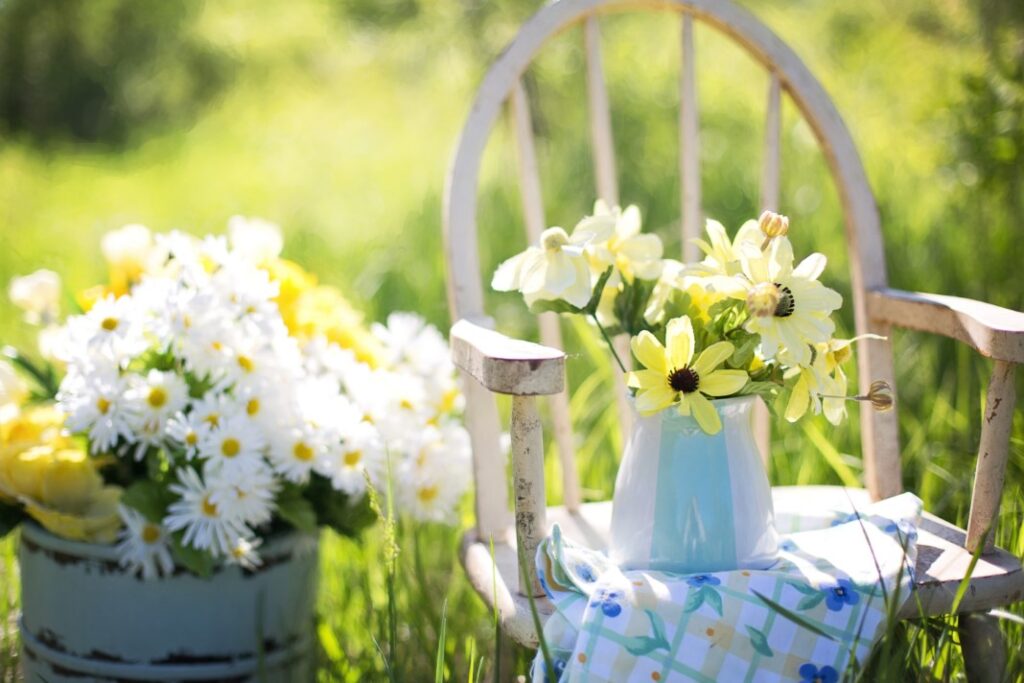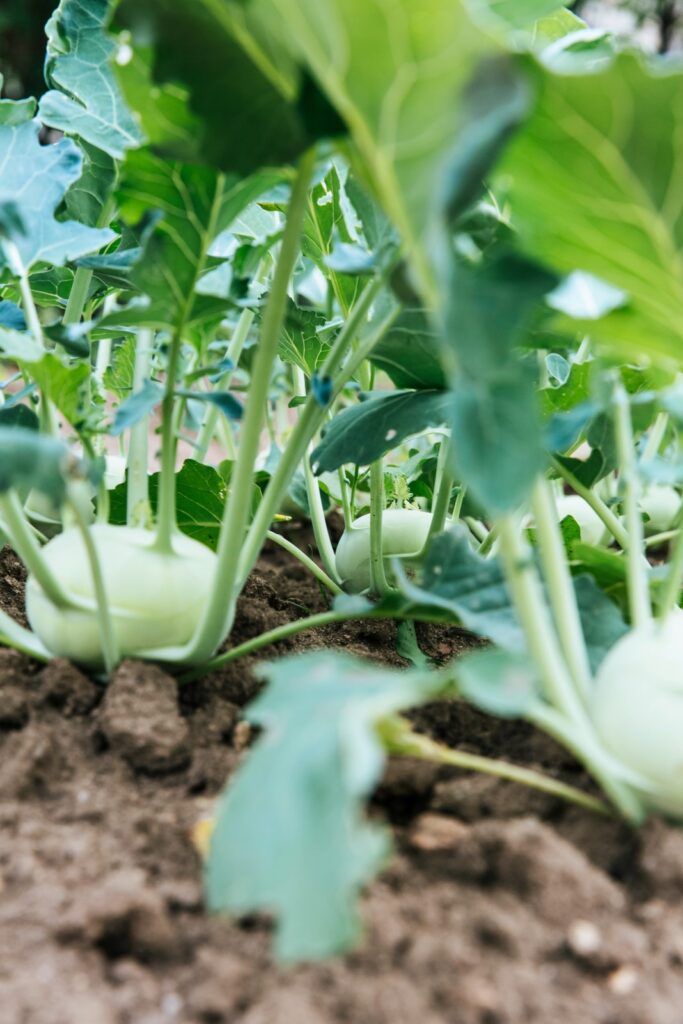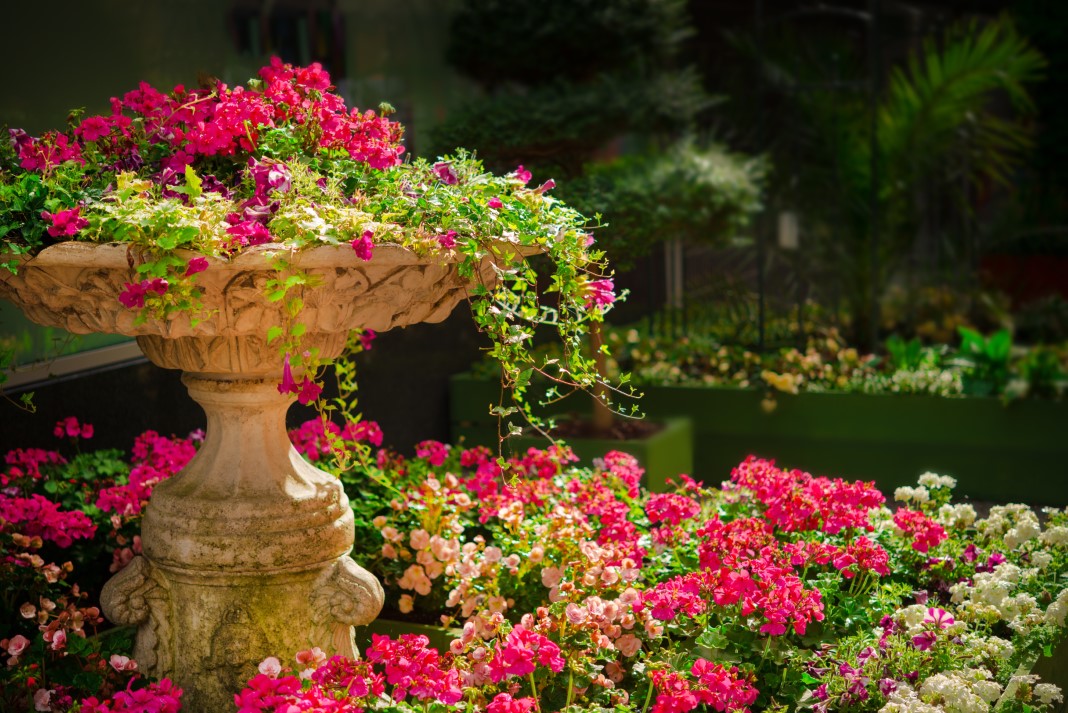If you plan to start a garden this year, you’ll need to prepare it for your plants to thrive. You can create a home garden in a backyard, on a balcony or even a window ledge with lots of light. Proper preparation work can help you get a good harvest, and prevent invasive, non-native species from growing.
If you don’t have a large outdoor space, consider a small garden on your balcony, front porch or indoors by a window. Leafy greens, herbs and tomatoes are all great small-space gardening options and grow well in a small raised garden bed or pot. Remember that the same sunlight, water, drainage and nutrient requirements for large outdoor gardens still apply for indoor plants and gardens.
Prepare your garden

Consider these actions to help you get ready to start planting your garden:
- Clear out your garden:
Delay clearing it out until temperatures are consistently above 10 degrees to help pollinator insects emerge from their overwintering spots. Remove all of the dead garden material from the previous year and consider using it as mulch to promote soil health. Remove all weeds, as they may come back. Remember to follow the Region of Peel’s guidelines by placing accepted yard waste in the brown paper bag or yard waste bin. You can also compost these items. - Avoid dumping or encroaching into natural areas:
If your property is beside a natural area, don’t dump yard waste materials or encroach into it. These areas are extremely fragile and encroaching into the area can be harmful. It has a negative impact on natural areas and can disturb wildlife habitats, increase erosion along slopes, introduce invasive, non-native species and smother native vegetation. - Remove all invasive, non-native plant species:
Have you seen invasive species like garlic mustard, dog-strangling vine or Japanese Knotweed on your property or in your garden? These highly invasive non-native plant species may change the soil chemistry in your garden or take over space in your garden, making it harder for your plants to grow. - Don’t compost invasive plant material:
Place and discard invasive plants in dark plastic bags. Leave the bags out in the sun for two weeks to ensure the plant has expired, then dispose of it with your garbage. - Remove spongy moth egg masses from your trees:
Spongy moth caterpillars (also known as Lymantria dispar dispar or LDD moth) are an invasive insect species that eat the leaves of trees, which can impact the overall health of your tree. Lowering the population by eliminating egg masses helps lower the overall impact on trees on your property. Until the end of April, you can search for egg masses on your trees and property. Egg masses can be found on trees, windowsills, under eavestroughs, patio furniture, fences or mailboxes. Watch the video on how to remove egg masses. If you spot spongy moths, you can report them using the online reporting form. - Prune your trees and shrubs:
Many trees or shrubs need to be pruned this time of year, especially those that bloom on new wood. However, to prevent putting oak trees at high risk of oak wilt, avoid pruning oak trees between May 1 and August 31. If you must prune an oak tree during this time, paint the wounds with pruning paint or any latex-based paint to prevent pathogens from infecting the tree.
Planting your garden or maintaining your lawn
Consider making more sustainable choices when planting your garden:

- Plant pollinator-friendly trees, shrubs and flowers native to southern Ontario:
Using native plants will help support Mississauga’s biodiversity. Wildlife like birds, beetles, ants, bees and butterflies use native plants for food and shelter. Consider asking your local nursery for plants that are native to Mississauga. You can start your search by referencing the Southern Ontario Grow Me Instead Guide. Research native plants for their scientific names before going to a nursery, as many plants share the same common names. Consider choosing native plants with different bloom times (spring, summer, fall blooming periods) for colour all season long. - Grow your food:
You can grow fruits (e.g. raspberries, strawberries, tomatoes), vegetables (e.g. kale, cucumbers, peppers, okra, bitter melon) and herbs (e.g. cilantro, parsley, basil) in your garden. You can also grow herbs and vegetable plants in containers or raised beds on your balcony or beside your windowsill. Growing your own produce is a simple and inexpensive form of urban agriculture. It also helps mitigate the effects of climate change by reducing food miles (the distance food travels from farm to plate) and greenhouse gas emissions. It’s also a great teaching tool and activity to do with your family. Check out this guide developed by Ecosource for more information on how to start a garden in Mississauga. - Avoid using fertilizers and pesticides:
If possible, consider not using any fertilizers in your garden or lawn to prevent polluted surface water runoff from entering the City’s stormwater system. Instead, add rich organic compost to your garden beds and lawns to add nutrients to your soil and encourage growth in lush plants. Compost can be gently raked into the grass when adding to lawns to disperse the soil. However, if fertilizers are used, consider only using them when it’s not raining and only on your lawn and garden – be careful not to spread fertilizers onto your driveway. When it rains, fertilizers and pesticides on hard surfaces can wash into the City’s stormwater system and local creeks, which impacts Mississauga’s local wildlife and aquatic ecosystems, and will end up in Lake Ontario. Importantly, the use of cosmetic pesticides is banned in Ontario and they should not be used in your garden. - Use grass clippings and leaves as mulch or nutrients for your lawn and garden:
You can keep grass clippings as mulch to retain moisture or shred leaves with a lawn mower to add nutrients to your lawns. If there are clumps of grass clippings and piles of leaves, those can be raked out or collected and properly disposed of in your compost or yard waste bag. - Make your boulevard a biodiversity oasis:
Mississauga residents can apply for a boulevard garden permit through the City to encourage pollinator pathways and community beautification. The City works with Blooming Boulevards, a community group that assists residents with creating native pollinator gardens on boulevards.
Now that you have enough information to get started, it’s time to dust off your trowel, get your hands dirty, and start planting!





